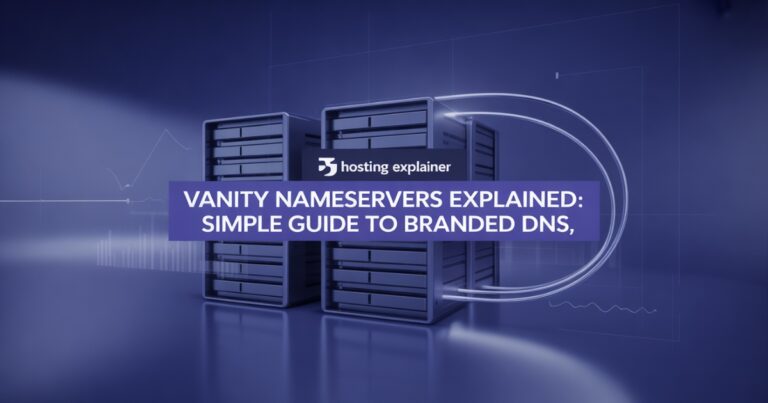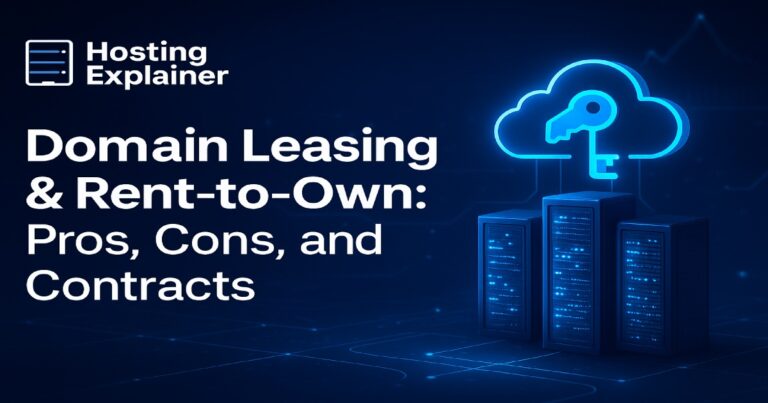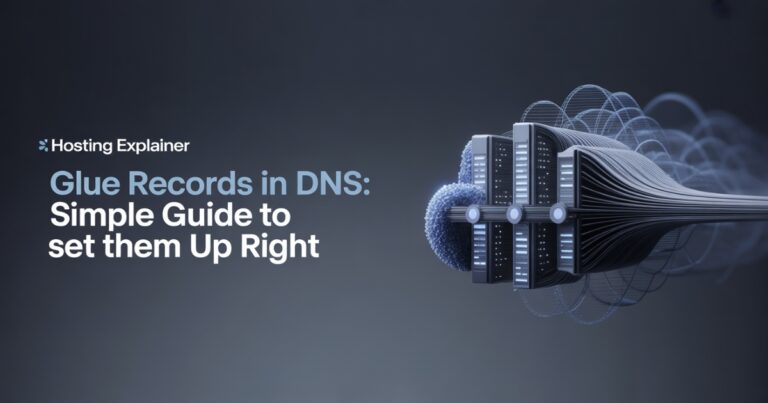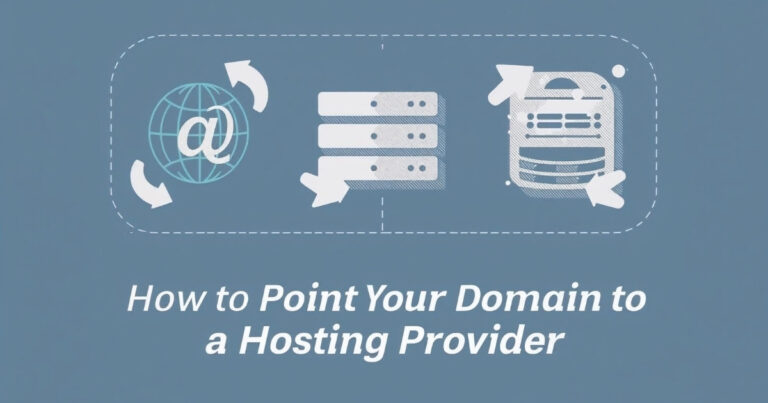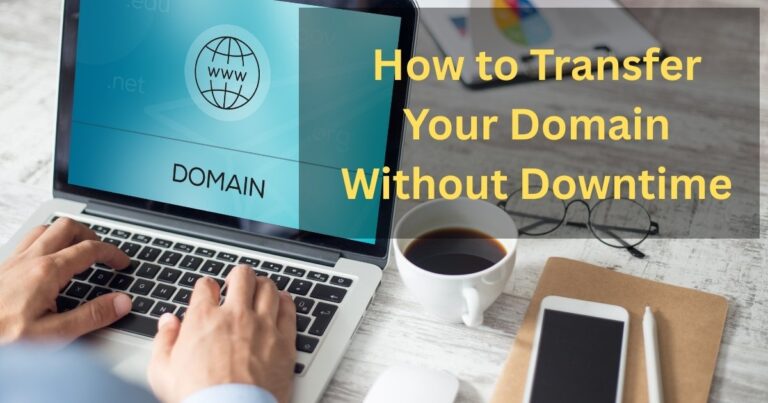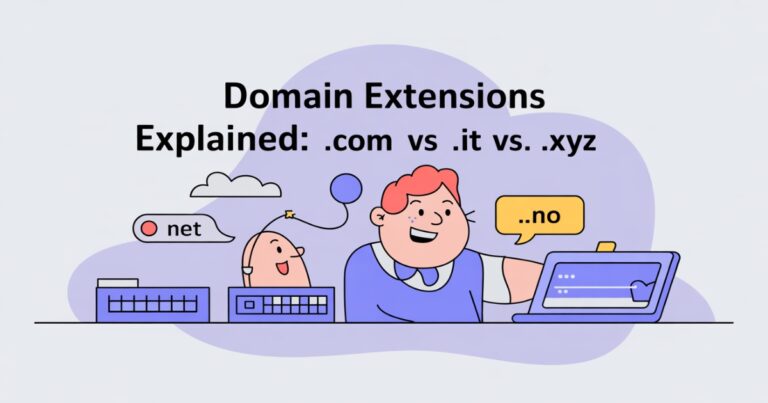WHOIS Privacy: Why Your Domain Needs It in 2025
When I bought my first domain years ago, I didn’t think about privacy. Within days, my inbox was flooded with spam, and my phone rang with random offers.
It felt invasive. I hadn’t even built the website yet. That’s when I learned about WHOIS privacy. If you’ve ever registered a domain name, your personal details, name, email, address, and phone go into a public database called WHOIS.
Anyone can look it up with a quick search. WHOIS privacy protection (also called domain privacy) hides that information and keeps you safer online.
In this guide, I’ll explain what WHOIS privacy is, why it matters, how it works, and what happens if you don’t enable it. Whether you run a small business, a personal blog, or a side project, protecting your data matters more than ever.
What Is WHOIS, and Why Does It Exist?
WHOIS is like the phonebook of the internet. It’s a public directory that lists who owns a domain name. It was created decades ago to make the web more transparent. If a website was used for illegal activity, WHOIS records helped identify the person responsible.
Each domain registration includes details like
- Registrant’s name or business name
- Email address
- Phone number
- Mailing address
- Registrar information and registration dates
ICANN (Internet Corporation for Assigned Names and Numbers) oversees WHOIS standards. While GDPR has hidden some data for EU residents, a lot of WHOIS information is still public worldwide. That means your contact details could be visible to anyone with internet access—including spammers and scammers.
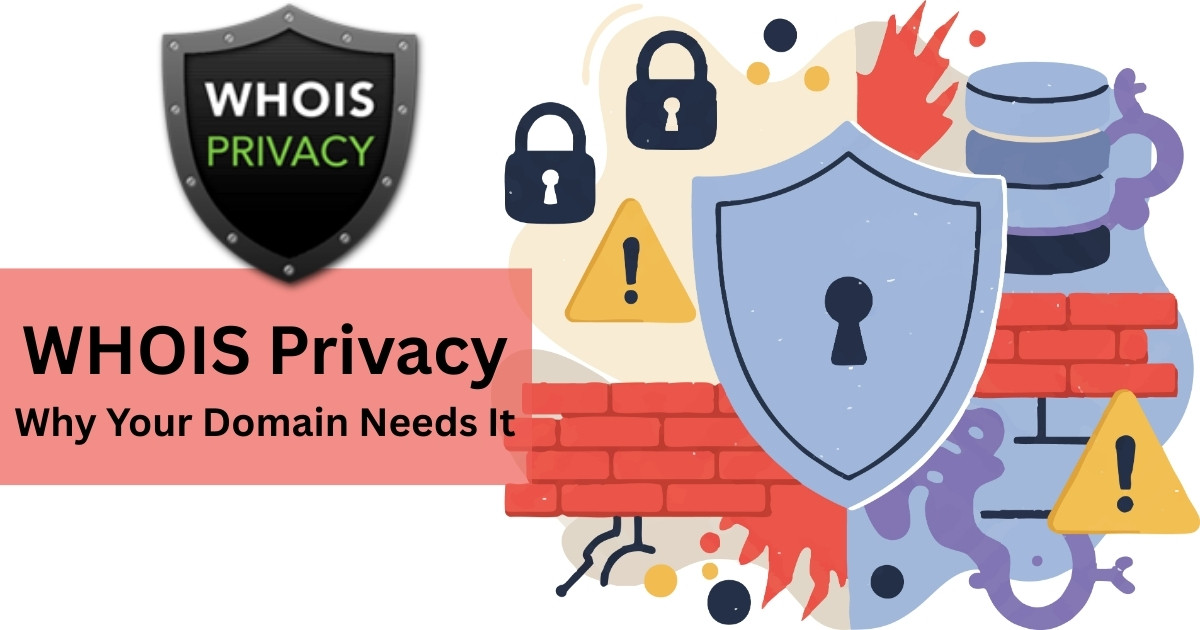
What Is WHOIS Privacy Protection?
WHOIS privacy protection is a service offered by registrars that hides your personal data from the WHOIS database. Instead of showing your name and contact details, the registrar displays proxy information or a generic contact email.
Here’s what it looks like:
| Without WHOIS Privacy | With WHOIS Privacy |
| John Doe, 123 Main St, johndoe@email.com, +1-555-123-4567 | Privacy Service, Registrar Address, generic email, masked phone |
This means spammers, scammers, and bots can’t easily scrape your info. Your domain still belongs to you the registrar just shields your identity from the public. Think of it like using a P.O. box instead of your home address.
Why You Need WHOIS Privacy for Your Domain
WHOIS privacy isn’t just a “nice to have”; it’s a must if you value your personal data. Here’s why:
- Keeps Your Personal Data Safe: Your name, email, and address stay hidden from the public eye.
- Reduces Spam and Scams: Privacy protection stops bots from harvesting your email.
- Protects Against Identity Theft: Criminals can’t easily impersonate you.
- Prevents Harassment or Doxxing: Essential if you run a sensitive blog or political site.
- Keeps Competitors From Snooping: Stops them from tracking your domain activity.
- Adds a Layer of Security: Helps prevent social engineering and domain hijacking attempts.
I once forgot to enable WHOIS privacy on a side project domain. Within a week, I got sales calls, spam emails, and even a fake invoice for “domain listing services.” Turning on privacy stopped it all. The peace of mind alone was worth it.
How WHOIS Privacy Works Step-by-Step
The process is simple:
- You register a domain with a registrar.
- Your personal info goes into the WHOIS database.
- When you enable WHOIS privacy, the registrar replaces that info with proxy data.
- If someone wants to contact you, they use a privacy email or form. The registrar forwards it to you securely.
This allows legitimate messages to reach you without exposing your private email or phone number.
GDPR and WHOIS Privacy: Do You Still Need It?
Some people think GDPR made WHOIS privacy useless, but that’s not true. GDPR only applies to EU residents and hides some, not all, information. Outside the EU, WHOIS data is still public. Even with GDPR, your registrar, law enforcement, or anyone with legal reason can still access your real details.
WHOIS privacy is still your best option for full, global privacy protection. It ensures that your info stays masked no matter where someone performs a lookup.
Is WHOIS Privacy Free or Paid?
It depends on your domain registrar:
| Registrar | Privacy Cost | Included by Default? |
| Namecheap | Free | Yes |
| Google Domains | Free | Yes |
| GoDaddy | Paid (Yearly) | No |
| Bluehost | Paid (Yearly) | No |
I recommend checking this before buying a domain. Some registrars advertise low domain prices but charge extra for privacy. It’s better to pay a slightly higher domain fee that includes privacy by default.
Does WHOIS Privacy Affect SEO or Domain Ownership?
WHOIS privacy does not harm your SEO or search rankings. Google has publicly said that private WHOIS data does not affect trust or authority.
You also remain the legal owner of the domain. Your registrar is just masking your contact info. You can disable WHOIS privacy at any time if you want your data visible. For example, if you want to show business legitimacy.
Risks of Not Using WHOIS Privacy
Leaving WHOIS data public is like posting your phone number and address on a public forum. Here’s what can happen:
- Endless spam emails and robocalls
- Fake bills for “domain listing services”
- Phishing scams that look like registrar notices
- Identity theft attempts
- Harassment or stalking
Business owners also risk competitors spying on them and seeing when they register new domains. Privacy protection is a cheap way to avoid these problems.
WHOIS Privacy vs. Domain Privacy vs. Proxy Services
You may see different names like “WHOIS privacy,” “domain privacy,” or “proxy service.” They all serve the same core purpose: hide your data.
| Feature | WHOIS Privacy (Registrar) | Third-Party Proxy Service |
| Ownership | You own the domain | You own the domain |
| Data Masking | Registrar hides info | Proxy company hides info |
| Cost | Free or paid | Usually paid |
Unless you have a very specific need, the privacy service from your registrar is usually easiest and cheapest.
How to Enable WHOIS Privacy Quick Guide
Here’s a quick walkthrough:
- Log in to your registrar account.
- Go to “Manage Domains.”
- Find the WHOIS privacy or domain privacy option.
- Toggle it ON or purchase the service.
- Wait for it to update (usually within a few hours).
After enabling it, do a WHOIS lookup to confirm your data is masked.
FAQs About WHOIS Privacy
1. What is WHOIS privacy protection?
WHOIS privacy hides your personal data from the public WHOIS database and replaces it with generic registrar info.
2. Why should I pay for WHOIS privacy if GDPR hides some data?
GDPR hides data for EU residents only. If you live outside the EU, your data is still public unless you enable privacy.
3. Can I disable WHOIS privacy later?
Yes, you can turn it off any time. Some businesses do this to show transparency.
4. Is WHOIS privacy worth it for personal blogs?
Yes. Even hobby sites can get spammed. Privacy keeps your home address and email safe.
5. Does WHOIS privacy hide my email completely?
Yes. Your registrar either forwards messages through a proxy email or uses a contact form.
6. What happens if I don’t enable WHOIS privacy?
Your details stay public. You may get spam, phishing emails, or fake invoices.
Final Thoughts on Domain Privacy
WHOIS privacy is one of the easiest security steps you can take for your website. It shields your personal data, prevents spam, and reduces your exposure to scams.
If you haven’t enabled it yet, log into your registrar account today and turn it on. It only takes minutes, costs little or nothing, and saves you stress later.

